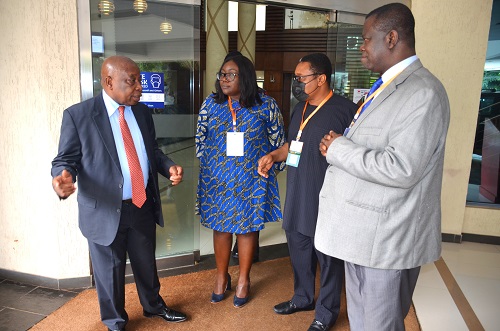
All 16 regions in the country are to benefit from a high level diagnostic centre under a proposed Public-Private Partnership (PPP) project.
The “Clinical Laboratory Improvement Project (CLIP)” is expected to decentralise laboratory services in the country’ while enhancing disease detection and effective care for patients to advance quality healthcare delivery.
At a market sounding event in Accra yesterday, the Health Minister, Kwaku Agyeman-Manu, said diagnostic services was pivotal to achieving universal health coverage (UHC) and ensuring equitable distribution of quality healthcare.
According to him, investments in the public health delivery system over the years had paid minimal attention to diagnostic care services, particularly at the primary and regional healthcare level.
“The goal of CLIP is to improve access to quality and affordable laboratory services and we will start in the regional hospitals and other selected health facilities to have at least one high level diagnostic centre to provide services that meet international standards,” he said.
Mr Agyeman-Manu said the growing demand for laboratory services burdened the few public facilities equipped to offer expected outcomes, thereby prompting referrals to private and foreign laboratories which sometimes delayed treatment and caused mortalities.
“This will increase access and improve turnaround time in the provision of laboratory services even at the regional level to ensure timely availability of test results for clinical decisions.
“We hope to improve efficiency in the provision of laboratory services to drive down cost of tests and enable the government to expand testing in an affordable manner to contribute to the goal of UHC,” he added.
The minister said other areas to be considered under the project would be a transport network to carry samples for possible referrals, expanding the “test menu” to cover routine and specialised laboratory tests as well as capacity building to build a resilient public laboratory system.
The Director for Monitoring and Evaluation at the Ministry of Finance, Mrs Stella Dede Williams, said the CLIP would position Ghana as a hub for medical excellence on the sub-region.
According to her, the success of the project over the next 10 years would inform a final upscale or otherwise saying; “this phase will cover rehabilitation, operationalisation and equipping of selected health facilities across the country.”
“The government will continue to leverage private sector to advance socio-economic development,” she said.
The Acting Director for Technical Coordination at the Ministry of Health (MoH), Dr Baffour Awuah, said the PPP arrangement would not increase cost of accessing laboratory services in public health facilities, adding that; “we are situating everything within the National Health Insurance Scheme (NHIS).”
The new PPP Act, 2020 (Act 1039), which came into force in December 2020, enjoins contracting public agencies to conduct market sounding event to gauge the interest of potential investors in a transaction and allow for structured dialogue prior to kick-starting a PPP project.
PPP is an agreement between the government and a for-profit or nonprofit private firm to jointly produce public goods and services.
Currently, laboratory testing volumes at the various regional hospitals in the country are estimated at 1.65 million each year with an additional 1.4 million referred to other facilities.
BY ABIGAIL ANNOH







